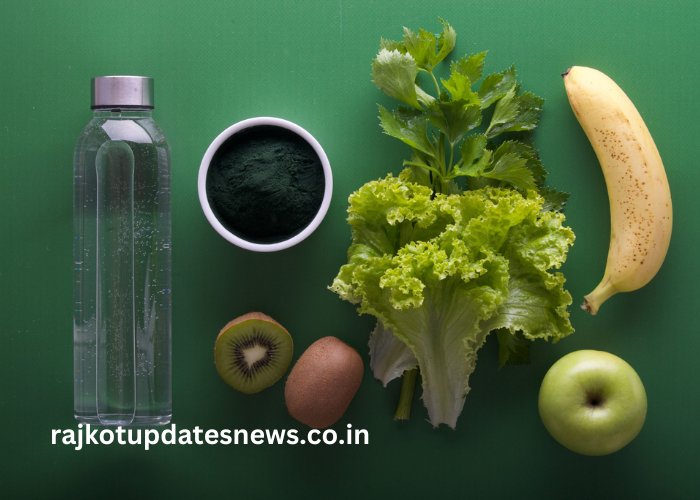
In a world where health concerns are at the forefront of our minds, the importance of a robust immune system cannot be overstated. Our immune system is our body’s defense mechanism against infections and diseases, acting as a shield to protect our overall well-being. Many people are now seeking ways to boost their immunity naturally through lifestyle changes, nutrition, and holistic practices. Wellhealthorganic.com: Immunity Boosting serves as a valuable resource for those eager to learn how to support their immune health effectively.
This blog will delve into the various aspects of immunity boosting, answering common questions and offering insights into how to enhance your immune function through diet, lifestyle, and natural remedies.
What Are the Key Factors Influencing Immunity?
Several factors influence our immune system’s effectiveness. These include genetics, age, nutrition, stress levels, and sleep quality. Understanding these factors is crucial for anyone looking to improve their immunity.
- Nutrition: A balanced diet rich in vitamins, minerals, and antioxidants plays a vital role in supporting the immune system. Specific nutrients, such as vitamin C, vitamin D, zinc, and probiotics, are particularly important.
- Lifestyle: Regular physical activity, avoiding smoking, and moderating alcohol consumption contribute to better immune health. Engaging in physical activities can help improve circulation, making it easier for immune cells to reach areas of the body that need them.
- Stress Management: Chronic stress can weaken the immune response. Therefore, practicing stress-reduction techniques, such as mindfulness, meditation, or yoga, can be beneficial.
- Sleep Quality: Adequate sleep is essential for maintaining immune function. During sleep, the body undergoes repair and regeneration processes that support immunity.
Wellhealthorganic.com: Immunity Boosting emphasizes the importance of these factors and encourages a holistic approach to immune health.
Which Foods Are Best for Boosting Immunity?
The food we consume plays a significant role in strengthening our immune system. Here are some of the best foods to include in your diet for optimal immunity:
- Citrus Fruits: Oranges, grapefruits, lemons, and limes are high in vitamin C, known to enhance the production of white blood cells. This increase is crucial for fighting infections.
- Berries: Rich in antioxidants, berries like blueberries and strawberries help combat oxidative stress and inflammation in the body.
- Leafy Greens: Spinach, kale, and other leafy greens are packed with vitamins A, C, and K, along with antioxidants that support overall health.
- Nuts and Seeds: Almonds, sunflower seeds, and walnuts are excellent sources of vitamin E, which plays a key role in immune function.
- Garlic: Known for its immune-boosting properties, garlic contains compounds that can enhance the immune response.
- Turmeric: This vibrant spice has anti-inflammatory and antioxidant properties, making it a powerful ally for immune health.
- Ginger: Ginger can help reduce inflammation and may enhance immune function due to its antioxidant properties.
- Probiotic-Rich Foods: Fermented foods like yogurt, kefir, and sauerkraut promote gut health, which is directly linked to immune function.
Incorporating these foods into your daily diet can significantly contribute to boosting your immunity. Wellhealthorganic.com: Immunity Boosting provides additional recommendations on meal planning to include these nutrient-rich foods.
How Does Hydration Affect Immunity?
Staying hydrated is crucial for overall health, including immune function. Water plays several roles in supporting the immune system:
- Nutrient Transport: Water helps transport essential nutrients to cells, ensuring that the body has the necessary resources to function optimally.
- Detoxification: Adequate hydration aids in flushing out toxins from the body, reducing the burden on the immune system.
- Mucous Membrane Health: Proper hydration keeps mucous membranes moist, which acts as a barrier against pathogens entering the body.
It’s essential to drink enough fluids throughout the day, aiming for at least 8 cups of water or more, depending on your activity level and climate. Wellhealthorganic.com: Immunity Boosting highlights the importance of hydration as a foundational aspect of immune health.
What Lifestyle Changes Can Support Immune Health?
Making specific lifestyle changes can significantly boost your immune system. Here are some effective strategies:
- Regular Exercise: Engaging in moderate-intensity physical activity for at least 150 minutes a week can enhance immune function. Activities like brisk walking, cycling, or dancing promote circulation and the production of immune cells.
- Adequate Sleep: Aim for 7-9 hours of quality sleep each night. Establishing a sleep routine and creating a relaxing bedtime environment can help improve sleep quality.
- Stress Management: Incorporate stress-reduction techniques into your daily routine. Activities like yoga, meditation, or deep breathing exercises can help lower stress levels, positively impacting your immune response.
- Avoiding Tobacco and Limiting Alcohol: Smoking and excessive alcohol consumption can weaken the immune system. Quitting smoking and moderating alcohol intake can significantly improve immune health.
- Maintaining a Healthy Weight: Being overweight can impair immune function. Focus on a balanced diet and regular physical activity to achieve and maintain a healthy weight.
By implementing these lifestyle changes, you can create a supportive environment for your immune system. Wellhealthorganic.com: Immunity Boosting encourages adopting these practices for long-term health benefits.
How Do Supplements Play a Role in Immunity Boosting?
In some cases, dietary supplements can play a role in supporting the immune system, particularly when dietary intake may not be sufficient. Some beneficial supplements include:
- Vitamin C: Often taken during cold and flu season, vitamin C can help enhance immune function.
- Vitamin D: Essential for immune health, vitamin D deficiency has been linked to increased susceptibility to infections. Supplementing can be especially important in areas with limited sunlight.
- Zinc: This mineral is crucial for immune cell function and can help reduce the duration of colds.
- Elderberry: Elderberry supplements may help reduce the severity and duration of cold and flu symptoms.
While supplements can be beneficial, it is essential to consult a healthcare professional before adding any new supplements to your routine. A well-balanced diet should be the primary source of nutrients, with supplements used as needed. Wellhealthorganic.com: Immunity Boosting provides guidance on appropriate supplementation.
Can Stress Impact Immune Function?
Yes, chronic stress can have a detrimental effect on the immune system. Stress triggers the release of hormones such as cortisol, which can suppress immune function. Over time, this can lead to increased susceptibility to infections and slower recovery from illness.
To mitigate the effects of stress on the immune system, it is crucial to practice stress-reduction techniques. These may include mindfulness meditation, regular physical activity, social support, and engaging in hobbies or activities that bring joy. Wellhealthorganic.com: Immunity Boosting emphasizes the importance of addressing stress for optimal immune health.
Conclusion
In conclusion, boosting immunity is a multifaceted approach that involves a balanced diet, a healthy lifestyle, and mindful practices. By incorporating nutrient-rich foods, staying hydrated, managing stress, and making positive lifestyle changes, individuals can significantly enhance their immune function.
Wellhealthorganic.com: Immunity Boosting serves as an excellent resource for anyone looking to improve their health through natural methods. By prioritizing immune health, we can better protect ourselves against infections and promote overall well-being. Embrace these practices and take charge of your immune health today!


